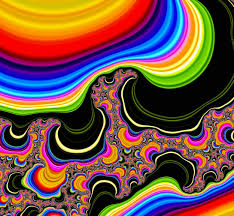
At some point in the near future, the potential for using psychedelic medicines to help heal the major psychological traumas that cause most mental illnesses will be a hot topic. Unfortunately, we will have to begin almost from the beginning, as the bulk of our historical knowledge about these substances has been destroyed.
Despite this, there is still a considerable amount of shamanic knowledge in the underground culture, certainly much more than what exists in the mainstream medical establishment, for whom the retarded calculus of “drugs = brain damage” still dominates thinking.
The essential thing that has to be understood is that psychedelics, like cannabis, serve to decondition the mind and brain, only in a much deeper and more sudden way than cannabis.
Deconditioning is here used in the clinical psychology sense to mean a process of unlearning – in particular, of unlearning involuntary subconscious reactions to things that may have been useful to deal with the problems of the past but which no longer are.
This is principally why the psychedelic experience is so difficult. It is also why the psychedelic experience is so exhilarating. One sees things as they actually are, as one did when a child, without the experience being filtered through hundreds of layers of conditioning collected over many forgotten years.
It is possible to condition oneself into a mental illness by thinking too hard about things, because the brain (crudely speaking) works like muscles in the sense that the more it is exercised the stronger it becomes.
Because anxiety and depression are often little more than a habitual fixation of thinking on either the future or the past, respectively, a psychedelic experience often has the effect of deconditioning a person from thought patterns that made them unhappy.
This is why a lot of practiced psychedelic users take them when they feel it’s time to reset the thinking. Usually this is after a certain amount of time has passed since the last experience.
Likewise, many people have suppressed traumatic memories. The suppression often makes good short-term sense in that it allows the damaged person to deal with their immediate problems of survival, but it often makes bad long-term sense in that the warping effect it has on someone’s personality magnifies over time.
This points the way to the major positive use of psychedelics in healing mental illness. Any mental illness that has been caused by overconditioning in an area of the brain/mind could be helped by a medicine that deconditions a person from the thoughts they did not want to have.
It could also give them an opportunity to bring up the suppressed memories and to consider them in a new light, free of the conditioned anxiety response that usually accompanies recollection of past traumas.
Where more research will be necessary is to make sure that the patient does not lose conditioning in areas of the brain/mind that actually helped them in their life.
There are many concepts and habits that people have learned for good reasons, in particular concepts around good social conduct that make life much easier for all of us. An 18-year old adult will have been conditioned for almost their entire life about many things.
So in order to be able to use these tools effectively, mental health practitioners will have to educate themselves past the barbaric superstitions that currently inform our approach to pre-pharmaceutical medicines.
Much of this will involve sitting down with drug users and talking to them to discover what benefits they have found in the use of various substances in their explorations of the mind.
This cannot happen until society comes to appreciate both that psychoactive drug users are people who have followed the prehistoric shamanic path, and that this path is still necessary in our society to protects us from the excesses of groupthink, of tradition and of mindless, knee-jerk programmed reactions and thinking.
